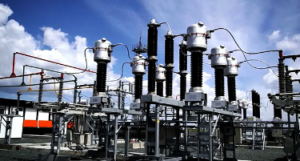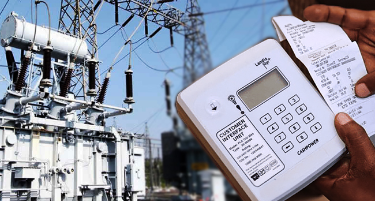On Tuesday, the House of Representatives took a significant step by urging the Nigeria Electricity Regulatory Commission (NERC) and the distribution companies (DISCOs) to immediately reverse the recently implemented tariff hike for Band A customers. This decision came after the adoption of a report presented by the House Committee on Power.
Victor Nwokolo, Chairman of the Committee on Power, presented the report and emphasized that the new tariff is unaffordable for many Nigerians. Consequently, the committee recommended a return to the previous tariff structure. The recommendations were subsequently adopted by the Committee of the Whole and passed by the House.
The House of Representatives also called for a further investigation into the circumstances surrounding the tariff hike to ensure transparency and fairness in the electricity billing system.
Details of the Tariff Hike for Band A Customers
In April, NERC announced a tariff increase specifically targeting Band A customers, who were set to pay N225 per kilowatt-hour. According to NERC, Band A subscribers were expected to receive at least 20 hours of power supply per day, which ostensibly justified the higher rate.
NERC clarified that the tariff hike was limited to Band A customers, impacting only 15 percent of the total electricity consumers. This decision, however, sparked widespread discontent among the public. Musliu Oseni, the Vice Chairman of NERC, explained on April 3 that the number of feeders categorized as Band A had been reduced from 800 to under 500, which subsequently meant that 17 percent now qualified as Band-A feeders. These feeders only serviced 15 percent of the total electricity customers connected to them.
Oseni also mentioned that the commission issued an April supplementary order, allowing a 235 kilowatt per hour allocation. Despite these clarifications, the decision was met with significant backlash from consumers and stakeholders who felt the increase was unwarranted and burdensome.
Public and Legislative Reaction
The tariff hike has been a contentious issue since its announcement. Many Nigerians have expressed frustration over the increased financial burden, particularly given the inconsistent and often unreliable power supply. The reaction from the public and various consumer advocacy groups has been overwhelmingly negative, prompting calls for the government and regulatory bodies to reconsider the decision.
 In response to the public outcry, the House Committee on Power conducted a thorough review and concluded that the new tariffs were unsustainable for the average Nigerian household. The committee’s report highlighted the economic hardships faced by many citizens, exacerbated by the increased electricity costs.
In response to the public outcry, the House Committee on Power conducted a thorough review and concluded that the new tariffs were unsustainable for the average Nigerian household. The committee’s report highlighted the economic hardships faced by many citizens, exacerbated by the increased electricity costs.
The House of Representatives’ resolution to reverse the tariff hike is a reflection of the lawmakers’ recognition of these economic challenges and their commitment to safeguarding the interests of their constituents. The call for further investigation indicates a desire to ensure that any future decisions regarding electricity tariffs are made transparently and equitably.
Implications and Next Steps
The resolution by the House of Representatives is a critical move towards addressing the concerns of Nigerian electricity consumers. By urging NERC and DISCOs to revert to the previous tariff rates, the House aims to alleviate the financial strain on households and promote fairness in the electricity billing system.
The proposed investigation into the tariff hike is expected to shed light on the decision-making process and provide a clearer understanding of the factors that led to the increase. This investigation will be crucial in ensuring that any future tariff adjustments are based on comprehensive and transparent evaluations.
As the situation develops, it will be important for all stakeholders, including NERC, DISCOs, and consumer advocacy groups, to engage in constructive dialogue aimed at finding sustainable solutions to the challenges facing Nigeria’s electricity sector. The ultimate goal should be to achieve a balance between providing reliable power supply and ensuring that electricity remains affordable for all Nigerians.
The House of Representatives’ actions underscore the importance of accountability and responsiveness in governance. By taking a stand against the tariff hike, the lawmakers have demonstrated their commitment to representing the interests of the people and ensuring that policies reflect the realities faced by ordinary Nigerians.




